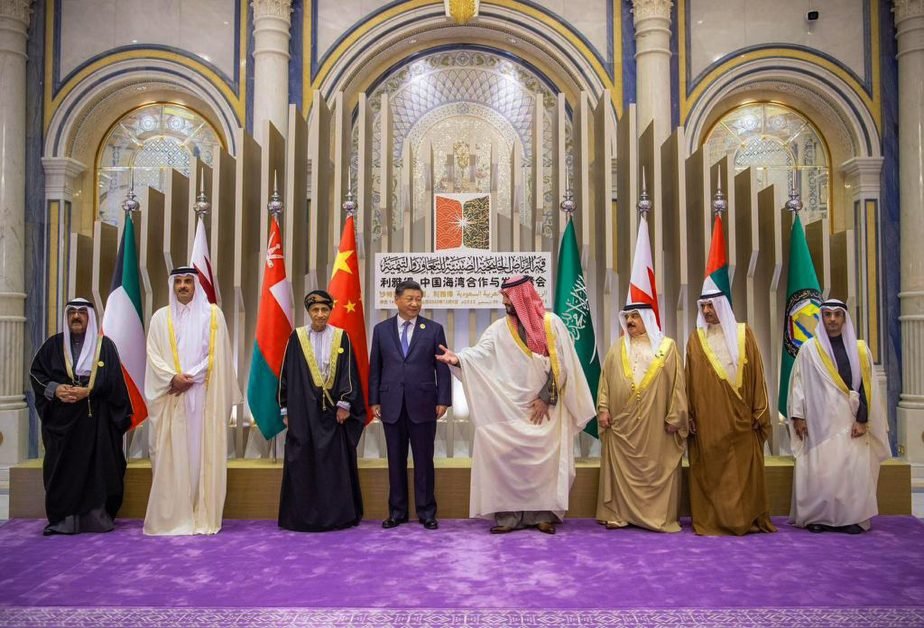End of the Empire is a twice-monthly feature on all news relating to the transition from the unipolar world of the US Empire to a multipolar world.
In a case of “what have you done for me lately?” the government of Iraq, elected under a constitution established by the US, has agreed to ban national trade in US dollars.
Violation of this ban will be subject to a fine of up to 1 million Iraqi dinars, and repeat offenders will be jailed. The government released a statement saying the economic stability of a nation depends on its control of the currency created within its borders.
“It is clear that Iraq is economically dominated by the US, and our government does not truly control or have access to its own money…” Iraqi MP and member of the Finance Committee in Iraq’s Council of Representatives, Hussein Mouanes, told The Cradle in an exclusive interview.
“We believe that it is crucial to move away from the hegemony of the dollar, especially as it has become a tool to impose sanctions on countries. It is time for Iraq to rely on its local currency”.
Iraq had already begun, as WaL reported last month, to conduct sales of oil with China in RMB rather than the dollar, and both of these announcements come on the financial front of what is a Middle East that is rapidly reorienting itself as it arrives in the second quarter of the 21st century.
On the diplomatic front, the region is learning to better trust its own—at least before the West, in matters of security and diplomacy. In early May, the Arab League—a sort of UN for Arabic-speaking countries, voted to readmit the Syrian Arab Republic into its ranks despite strong protest from the US.
“We do not believe Syria merits readmission into the Arab League at this time,” a US State Department spokesperson said on May 7th, adding that the Biden administration would “not normalize with the Assad regime and that our sanctions remain in full effect”.
In plain English, the reason for State’s belief is that Bashar al-Assad remains in power. However, despite the crippling sanctions campaign that remains applied to the Syrian economy, even in the face of the devastating earthquake that hit the country and her neighbor Turkey earlier this year, anonymous sources told The Cradle that there are talks ongoing in the Oman capital of Muscat between the US and Syria regarding several issues.
China’s SCI and more lies about Syria
Following Donald Trump’s loss in the presidential elections of 2020, Special Representative to Syria Jim Jeffrey bragged and laughed about how the administration’s civilian military authorities were kept permanently in the dark about the real number of US troops stationed in Syria, saying “we were always playing shell games”.
He admitted in an interview with Defense One that the actual number of troops in Syria was “a lot higher” than what was conveyed to the president. According to sources speaking with The Cradle, the numbers of troops are around 2,000 operating out of 22 bases in the northeast, something which the Syrian delegation of these secret talks were keen to see removed.
The US was apparently only interested in advocating for the release of a former Marine Corps officer and freelance reporter who was captured by a rebel group in 2012.
China’s Foreign Ministry spokesman Wang Wenbin welcomed Syria’s official return to the Arab League, saying the move “is conducive to the strength and unity of Arab states” and can ensure “peace and stability,” and “was something to be happy about”.
China has been uncharacteristically active in Middle-Eastern affairs over the last few years, making headlines around the world as she mediated a return to formal relations between Saudi Arabia and Iran.
In December, the Persian Gulf states welcomed China’s new paper on a Middle East entry into China’s Global Security Initiative (GSI) an exclusionist organization of Asian states looking to forge their own way in the world beyond the influence of the US primarily, and the West at large.
The GSI concept paper, according to The Diplomat calls for establishing a “new security framework” based on the Chinese five-point proposal for peaceful coexistence, “including advocating mutual respect, upholding equity and justice, realizing non-proliferation, jointly fostering collective security, and accelerating development cooperation”.
The US might suggest ulterior motives for the GSI—just the Middle East version of an invitation for Chinese economic leveraging which the Eastern superpower has worked so effectively in Africa, but together, the last six US presidents unilaterally launched 4 wars in the region, several massive economic war operations, and routinely used coercion and bribery to pit various regional nations against each other.
By contrast and as part of the GSI framework, China has promised to support the various Middle East nation-states, rather than take the lead, in “strengthening dialogue and improving their relations, accommodating the reasonable security concerns of all parties, strengthening the internal forces of safeguarding regional security, and supporting the League of Arab States and other regional organizations in playing a constructive role in this regard”.
After the last thirty years of war, it would be understandable why countries like Syria and Iraq would opt for the GSI over the USA. WaL
PICTURED ABOVE: Crown Prince Mohammed bin Salman welcomes Chinese President Xi Jinping at the Gulf Cooperation Council Summit in Riyadh. PC: Saudi Press Agency.
If you think the stories you’ve just read were worth a few dollars, consider donating here to our modest $500-a-year administration costs.



